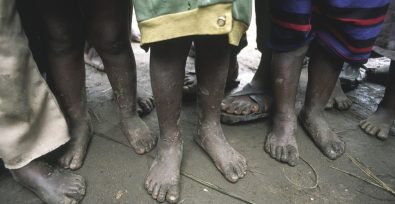Across Africa, children are digging for the minerals powering electric cars, solar panels, and wind turbines. The scale is staggering. An estimated 40,000 children work in cobalt mines in the Democratic Republic of Congo (DRC), 10,000 in mica mines in Madagascar, and more in dangerous lithium and copper mines in Nigeria and Zambia. Globally, more than one million children work in mines and quarries.
Not all child labor is hazardous or amounts to child slavery. But it can be. In 2019, a group of Congolese survivors filed a lawsuit against Tesla, Apple, Google, Dell, and Microsoft. The companies were accused of aiding and abetting the death and injury of children forced to work in cobalt mines in their supply chains. The case was dismissed in 2023, not because the abuse did not happen, but because the court ruled the companies could not be held legally responsible for the actions of their suppliers.
Abuses in the mining industry
The global shift away from fossil fuels is driving a surge in demand for minerals like cobalt, lithium, nickel, and graphite. Lithium demand grew by 30% in 2023, and demand for cobalt and other rare earth elements grew by more than 8%. To secure supply chains and lessen dependence on China, the US, EU, Canada, and multinational banks are pouring investment into Africa.
While the clean energy transition has created vast opportunities for mining companies, workers, including children, often pay the highest price. In the DRC, men face abusive treatment and wages too low to support their families. For women, the risks multiply. TIME reports:
Here, an estimated 500,000 to 2 million people depend on artisanal mining for their livelihood, and an estimated 30 to 50% of workers are women. Yet, women are relegated to the lowest-paid jobs and are often sexually harassed.
Without fair wages, safety, or respect, families are caught in a cycle of poverty, driving children into hazardous labor just so they can afford one meal per day.
Women leaders key to reducing child labor
In the DRC, activist and mine owner Annie Sinaduku Mwange shows how empowering women can change the industry from within. She saw that women were relegated to the lowest-paid, most dangerous jobs, often exposed to harassment and abuse. Her response was to organize women to take control of the mines themselves.
Through her network, women acquire funds and expertise to purchase and manage operations. These “mères bosses”—or mother bosses— set the rules, demand respect, and build economic power. With greater control over resources, women are more likely to send their children to school instead of into mines. Mwange says:
Listening to women is crucial because they are often the primary caregivers for children in communities[…] They understand family dynamics and the economic challenges they face.
In Nigeria, two large lithium plants backed by Chinese investors are planned this year, however, most mines remain unlicensed and unsafe. The Women Trafficking and Child Labour Eradication Foundation works with government and community leaders, advising on practical measures such as school feeding programs that reduce the need for child labor. By engaging parents, religious leaders, and communities directly, they ensure solutions meet real needs rather than relying on top-down approaches.
Demand just and sustainable supply chains
While there is no single solution to building a just and sustainable supply chains, governments and companies must take guidance from those living with the impact of mining and commit real investment into their communities.
Women leaders across Africa remind us that ending modern slavery isn’t just about boycotting bad suppliers. We must also invest in protecting children from the conditions that push them into slavery in the first place.
Join us in demanding stronger laws that put people and planet before profits. Sign the petition.







Freedom United is interested in hearing from our community and welcomes relevant, informed comments, advice, and insights that advance the conversation around our campaigns and advocacy. We value inclusivity and respect within our community. To be approved, your comments should be civil.